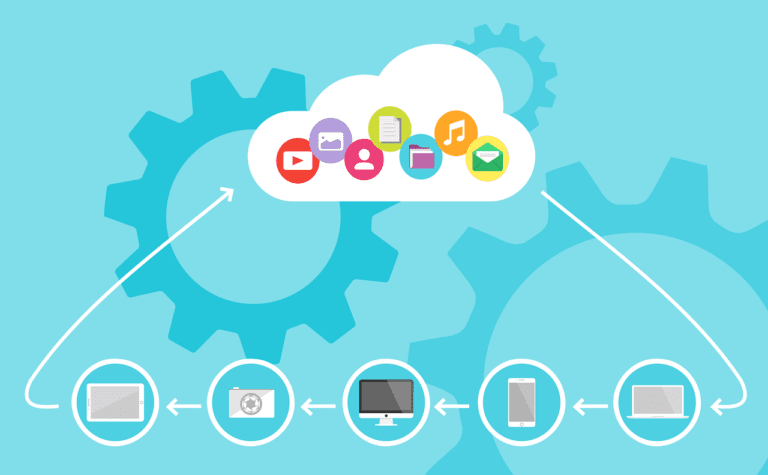What’s The Role Of IT Services In Corporate Training And E-learning Platforms?
In today’s rapidly evolving corporate landscape, the role of IT services in corporate training and e-learning platforms has become increasingly crucial. With the rise of technology and the growing importance of digital learning, businesses are turning to IT services to enhance their training programs and provide innovative e-learning solutions. From designing user-friendly online platforms to ensuring seamless integration of various software and applications, IT services play a vital role in creating engaging and impactful learning experiences for employees. By harnessing the power of technology, organizations can optimize their training programs, boost employee performance, and ultimately drive business success.
The Importance of IT Services in Corporate Training and E-learning Platforms
Corporate training and e-learning platforms have become essential in today’s business landscape. As companies strive to stay competitive and keep up with the rapidly changing technological advancements, the role of IT services in facilitating effective and efficient training programs has become increasingly important. IT services play a crucial role in enhancing accessibility and availability, ensuring infrastructure reliability and security, facilitating remote learning and collaboration, supporting learning management systems (LMS), managing digital content and learning resources, integrating virtual reality (VR) and augmented reality (AR), securing user data and privacy, enabling gamification and interactive learning, providing technical support and troubleshooting, and integrating learning analytics and reporting systems. Let’s dive into each of these areas to understand their importance.
1. Enhancing Accessibility and Availability
1.1 Online Accessibility
IT services enable corporate training and e-learning platforms to be accessible online, breaking the barriers of time and location. Employees can access training materials and resources anytime and anywhere, allowing for flexible learning opportunities. Online accessibility also caters to individuals with disabilities, ensuring equal learning opportunities for all.
1.2 Mobile Accessibility
With the increasing use of mobile devices, IT services ensure that corporate training and e-learning platforms are accessible on various mobile platforms. This enables employees to learn on the go, making the learning process more convenient and efficient.
1.3 Multilingual Support
IT services play a crucial role in providing multilingual support in corporate training and e-learning platforms. This allows organizations to cater to a diverse workforce, ensuring that training materials are accessible to employees who speak different languages. Multilingual support enhances the learning experience and promotes inclusivity within the organization.
2. Ensuring Infrastructure Reliability and Security
2.1 Network Infrastructure
IT services are responsible for maintaining a robust network infrastructure that supports corporate training and e-learning platforms. They ensure reliable and high-speed internet connectivity, enabling seamless access to training materials and resources. A reliable network infrastructure is crucial for uninterrupted learning experiences and smooth collaboration among learners.
2.2 Servers and Cloud Services
IT services manage servers and utilize cloud services to host and store training materials and resources. This ensures scalability, efficiency, and accessibility to a large number of users simultaneously. By leveraging cloud services, organizations can reduce infrastructure costs and offer a secure and reliable training environment.
2.3 Data Backup and Recovery
IT services implement robust data backup and recovery solutions to protect valuable training data. Backing up training materials and user progress ensures that data remains intact in the event of system failures or disasters. IT services play a vital role in ensuring data integrity and enabling quick recovery to minimize downtime and disruptions in the training process.
3. Facilitating Remote Learning and Collaboration
3.1 Virtual Classroom Platforms
IT services enable the implementation and management of virtual classroom platforms, which are essential for remote learning. These platforms provide interactive and engaging learning experiences, replicating the traditional classroom environment virtually. IT services ensure smooth operation of virtual classrooms, including features such as video conferencing, chat, and screen sharing capabilities.
3.2 Real-time Collaboration Tools
IT services integrate real-time collaboration tools into corporate training and e-learning platforms, enabling learners to engage and collaborate with each other. These tools facilitate discussions, group activities, and project-based learning, encouraging active participation and knowledge sharing.
3.3 Web Conferencing Solutions
Web conferencing solutions play a crucial role in facilitating remote learning and collaboration. IT services ensure the implementation and integration of web conferencing tools that allow trainers and learners to interact in real-time, regardless of their geographical locations. Web conferencing solutions enhance engagement and enable face-to-face interactions, fostering a sense of community and connection among learners.
4. Supporting Learning Management Systems (LMS)
4.1 LMS Implementation and Customization
IT services play a significant role in the implementation and customization of Learning Management Systems (LMS). LMS serves as a central hub for managing and delivering training content, tracking learner progress, and assessing performance. IT services ensure that the LMS is tailored to the organization’s specific needs and requirements.
4.2 LMS Integration with Third-party Systems
IT services integrate the LMS with various third-party systems, such as HR systems and talent management platforms. This integration allows for seamless data exchange, enhancing the efficiency of training program management and enabling organizations to have a unified view of employee development.
4.3 User Management and Authentication
IT services manage user accounts, authentication, and access control in corporate training and e-learning platforms. This ensures that only authorized individuals have access to the training materials and resources. User management and authentication play a vital role in maintaining data security and protecting confidential training content.
5. Managing Digital Content and Learning Resources
5.1 Content Creation and Authoring Tools
IT services provide content creation and authoring tools that enable trainers and subject matter experts to develop engaging and interactive training materials. These tools allow for the creation of multimedia content, including videos, presentations, and interactive quizzes, enhancing the effectiveness of the learning experience.
5.2 Digital Asset Management Solutions
IT services implement digital asset management solutions that enable efficient organization, storage, and retrieval of digital content. These solutions ensure that training materials and resources are easily accessible to trainers and learners, improving productivity and reducing the time required to find relevant content.
5.3 Content Delivery and Distribution
IT services facilitate the delivery and distribution of digital content in corporate training and e-learning platforms. They ensure that learners can access content in various formats, such as videos, documents, and interactive modules. Effective content delivery and distribution enhance the learning experience and enable learners to consume information in their preferred formats.
6. Integrating Virtual Reality (VR) and Augmented Reality (AR)
6.1 VR and AR Development and Integration
IT services play a crucial role in the development and integration of Virtual Reality (VR) and Augmented Reality (AR) technologies into corporate training and e-learning platforms. VR and AR offer immersive learning experiences, allowing learners to practice skills in realistic scenarios. IT services ensure compatibility and seamless integration of hardware and software required for VR and AR implementations.
6.2 Hardware and Software Compatibility
IT services ensure that the hardware and software used for VR and AR in corporate training and e-learning platforms are compatible and optimized for the desired learning outcomes. They select and configure the necessary equipment, such as VR headsets and tracking devices, and ensure their proper functioning.
6.3 Immersive Learning Experiences
By integrating VR and AR technologies, IT services enhance the learning experience by providing realistic and immersive environments for learners. These technologies enable learners to simulate tasks, perform virtual experiments, and interact with virtual objects. Immersive learning experiences foster engagement, retention, and practical application of knowledge and skills.
7. Securing User Data and Privacy
7.1 User Authentication and Access Control
IT services implement robust user authentication and access control measures to protect user data and ensure privacy. Strong authentication methods, such as multi-factor authentication, and access control policies minimize the risk of unauthorized access to training platforms and sensitive user information.
7.2 Data Encryption and Secure Transmission
IT services ensure that user data is encrypted during transmission and storage to prevent unauthorized access and data breaches. Encrypted communication protocols, secure data transfer protocols, and encryption algorithms contribute to data security and protect user privacy.
7.3 Compliance with Data Protection Regulations
IT services ensure that corporate training and e-learning platforms comply with data protection regulations and industry standards. They implement necessary measures to protect user data, such as anonymization techniques, consent management, and adherence to privacy policies and legal requirements.
8. Enabling Gamification and Interactive Learning
8.1 Gamification Platforms and Strategies
IT services enable the implementation of gamification platforms and strategies in corporate training and e-learning platforms. Gamification uses game elements and mechanics to enhance engagement, motivation, and learning outcomes. IT services design and configure gamified experiences, including points, badges, leaderboards, and challenges, to make learning enjoyable and interactive.
8.2 Interactive Simulations and Scenario-based Learning
IT services develop interactive simulations and scenario-based learning modules to promote practical application and problem-solving skills. These simulations allow learners to experience real-world scenarios in a controlled environment, preparing them for real-life situations. IT services ensure that these simulations are well-designed, immersive, and aligned with learning objectives.
8.3 Feedback and Progress Tracking
IT services incorporate feedback mechanisms and progress tracking tools to provide learners with real-time feedback on their performance. These tools allow trainers and learners to monitor progress, identify areas of improvement, and adjust the training content accordingly. Feedback and progress tracking contribute to personalized learning experiences and continuous improvement.
10. Integrating Learning Analytics and Reporting Systems
10.1 Learning Analytics Dashboards and Metrics
IT services integrate learning analytics dashboards and metrics into corporate training and e-learning platforms. These analytics provide insights into learner engagement, progress, and performance. The data collected allows organizations to analyze the effectiveness of training programs, identify gaps in knowledge, and make data-driven decisions to improve learning outcomes.
10.2 Reporting and Assessment Tools
IT services enable the integration of reporting and assessment tools in corporate training and e-learning platforms. These tools allow trainers and administrators to generate comprehensive reports on learner performance, completion rates, and assessments. Reporting and assessment tools simplify the evaluation process and provide actionable insights for trainers and organizational stakeholders.
10.3 Performance Monitoring and Customization
IT services implement performance monitoring and customization features in corporate training and e-learning platforms. Performance monitoring allows trainers to track learners’ progress in real-time and provide timely interventions or additional support when needed. Customization features enable personalized learning paths based on individual learner needs and preferences.
In conclusion, IT services play a critical role in facilitating effective and efficient corporate training and e-learning platforms. By enhancing accessibility and availability, ensuring infrastructure reliability and security, facilitating remote learning and collaboration, supporting learning management systems, managing digital content and learning resources, integrating VR and AR, securing user data and privacy, enabling gamification and interactive learning, providing technical support and troubleshooting, and integrating learning analytics and reporting systems, IT services contribute to the success and effectiveness of training programs in organizations. With the continuous advancements in technology, the role of IT services will only grow in importance, empowering organizations to leverage the full potential of corporate training and e-learning platforms.








